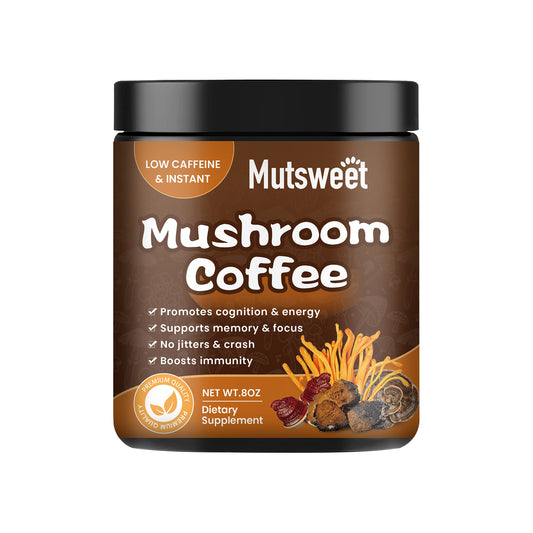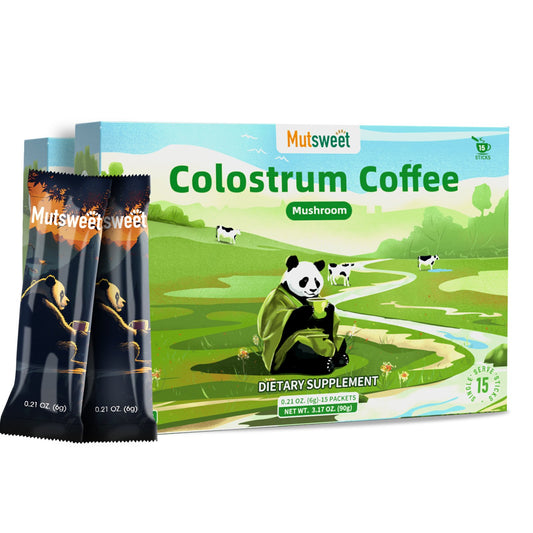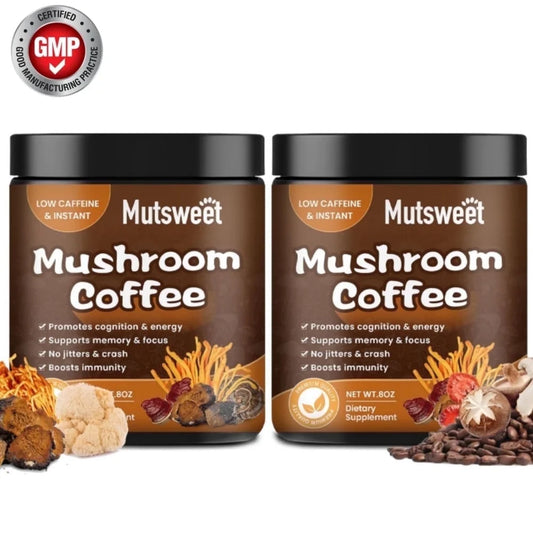In recent years, the rise of plant-based diets has not only transformed our culinary landscape but has also introduced a range of dairy-free alternatives to traditional staples. Among these, plant-based creamers have gained significant traction as healthier, more sustainable options for coffee and tea lovers. But what exactly makes plant-based creamers stand out from their dairy counterparts?
This article delves into the myriad benefits of choosing plant-based creamers over dairy-based options. From health advantages and environmental impact to ethical considerations and nutritional value, we will explore why more people are opting for these dairy-free alternatives. Whether you're a long-time plant-based eater or just considering a switch, understanding the benefits of plant-based creamers can help you make informed choices for both your health and the planet.
The Benefits of Plant-Based Creamers
Health Benefits
Switching to plant-based creamers can offer several health advantages compared to traditional dairy creamers:
- Lower in Saturated Fat: Many plant-based creamers, such as those made from almond, oat, or coconut milk, contain less saturated fat than dairy creamers. High saturated fat intake has been linked to increased cholesterol levels and heart disease, making plant-based options a heart-healthier choice.
- Reduced Risk of Lactose Intolerance Symptoms: For individuals who are lactose intolerant, plant-based creamers provide a lactose-free alternative, eliminating the risk of digestive discomfort associated with dairy
- Increased Nutrient Profile: Plant-based creamers often include added nutrients like vitamins D and B12, which are important for maintaining bone health and energy levels. Some also offer additional benefits from ingredients like chia seeds or flax seeds, which are rich in omega-3 fatty acids and antioxidants.
Environmental Impact
Choosing plant-based creamers can significantly reduce your environmental footprint:
- Lower Carbon Footprint: Plant-based milk production generally results in fewer greenhouse gas emissions compared to dairy milk production. For instance, producing almond or oat milk typically emits less carbon dioxide compared to dairy
- Reduced Water Usage: Dairy farming requires substantial water resources for raising cattle and producing milk. In contrast, producing plant-based milk requires less water, contributing to more sustainable water use.
- Less Land Use: Plant-based milk production often requires less land compared to dairy farming, which involves raising livestock and growing feed crops. This can help reduce deforestation and habitat destruction.
Ethical Considerations
For those concerned with animal welfare, plant-based creamers offer an ethical alternative:
- No Animal Cruelty: Plant-based creamers are derived from plants rather than animals, eliminating concerns about animal welfare and cruelty associated with dairy
- Support for Sustainable Farming: Many plant-based creamer brands support sustainable and ethical farming practices, further aligning with ethical consumption principles.
Nutritional Value
The nutritional profile of plant-based creamers can vary, but many offer benefits:
- Diverse Nutrient Profiles: Depending on the base, plant-based creamers can provide a range of nutrient For example, oat milk is a good source of fiber, while almond milk is rich in vitamin E.
- Customizable Options: Plant-based creamers come in various formulations, including unsweetened, low-sugar, or fortified with additional vitamins and minerals, allowing you to select options that meet your nutritional needs and preferences.
Incorporating plant-based creamers into your diet not only supports personal health goals but also contributes to broader environmental and ethical benefits. By choosing plant-based over dairy creamers, you can enjoy your favorite beverages while making a positive impact on your health and the planet.

How to Choose the Right Plant-Based Creamer
Selecting the best plant-based creamer for your needs involves considering several factors. Here’s how you can make an informed choice:
Ingredients to Look For
When shopping for plant-based creamers, check the ingredient list for quality and nutritional value:
- Natural Ingredients: Opt for creamers with minimal and natural ingredients. Avoid those with excessive additives, artificial flavors, or preservatives. Creamers with simple ingredients like almond, oat, or coconut milk, and natural sweeteners are preferable.
- Fortified Options: Look for creamers that are fortified with essential nutrients such as calcium, vitamin D, and vitamin B12. This ensures you get added health benefits and maintains nutritional balance, especially if you're transitioning from dairy
- No Added Sugars: Choose unsweetened or lightly sweetened options to avoid excess sugar intake. Many plant-based creamers offer no added sugars or use natural sweeteners like agave or stevia.
Flavor and Texture Preferences
Different plant-based creamers offer varied flavors and textures, so consider your preferences:
- Flavor Profiles: Plant-based creamers come in various flavors, including vanilla, hazelnut, and original. Some flavors complement certain types of coffee or tea better than others. Taste a few options to determine which flavor best suits your palate.
- Texture and Consistency: The texture of plant-based creamers can differ from one brand to another. Some may be thicker and creamier, while others might be lighter. The texture can affect the overall mouthfeel of your beverage, so select a creamer that enhances your drinking experience.
Dietary Needs
Your specific dietary needs and preferences will guide your choice:
- Allergies and Intolerances: If you have allergies or intolerances, select a creamer that avoids problematic ingredients. For example, if you have a nut allergy, choose a soy or oat-based creamer instead of almond milk.
- Vegan and Gluten-Free Options: For those following a vegan or gluten-free diet, ensure that the plant-based creamer meets these dietary restrictions. Many plant-based creamers are naturally vegan and gluten-free, but always check the labels to confirm.
Brand Reputation and Certifications
Consider the brand's reputation and any relevant certifications:
- Ethical and Sustainable Practices: Choose brands known for ethical sourcing and sustainable Look for certifications like USDA Organic or Fair Trade, which indicate that the brand adheres to environmentally friendly and socially responsible practices.
- Customer Reviews: Reading customer reviews can provide insights into the taste, texture, and overall quality of the creamer. Reviews can also reveal any potential issues or benefits that may not be apparent from the product description alone.
By carefully selecting plant-based creamers that align with your health goals, dietary needs, and personal preferences, you can enhance your beverage experience while supporting a more sustainable and ethical lifestyle.
How to Incorporate Plant-Based Creamers into Your Daily Routine
Integrating plant-based creamers into your daily routine can be both simple and enjoyable. Here are some creative ways to include them in your diet:
Coffee and Tea Enhancements
Plant-based creamers are a fantastic addition to coffee and tea. Here’s how to make the most of them:
- Morning Coffee: Add a splash of your favorite plant-based creamer to your morning coffee for a creamy, flavorful boost. Experiment with different flavors like vanilla or hazelnut to find what complements your brew best.
- Herbal and Green Teas: Enhance the richness of herbal or green teas by adding a splash of plant-based creamer. It can help mellow out strong flavors and add a touch of creaminess without overwhelming the tea's delicate taste.
Smoothies and Shakes
Use plant-based creamers to make your smoothies and shakes even more nutritious and creamy:
- Creamy Smoothies: Replace traditional dairy or yogurt with plant-based creamers in your smoothies. They blend well with fruits and vegetables, adding a rich texture without altering the flavor significantly.
- Protein Shakes: Incorporate plant-based creamers into your post-workout protein shakes. They can add extra creaminess and flavor, making your shake more satisfying and enjoyable.
Baking and Cooking
Plant-based creamers can also be used in various recipes:
- Baking: Substitute plant-based creamers for milk or cream in baking recipes. They work well in cakes, muffins, and bread, providing a subtle flavor while keeping the recipe dairy-free.
- Cooking: Use plant-based creamers in savory dishes like soups and sauces. They can add a creamy consistency to dishes like creamy tomato soup or pasta sauces without the need for heavy cream.
Healthy Snacks
Plant-based creamers can be used to create delicious and healthful snacks:
- Chia Pudding: Mix plant-based creamer with chia seeds to make a creamy, nutrient-rich chia pudding. Add fruits, nuts, or seeds for added texture and flavor.
- Overnight Oats: Combine plant-based creamer with oats and your favorite add-ins (like berries, nuts, or honey) for a quick and nutritious breakfast or snack.
DIY Creamer Recipes
Consider making your own plant-based creamer at home to tailor it to your taste preferences and dietary needs:
- Homemade Almond Creamer: Blend soaked almonds with water, strain, and add a touch of vanilla or maple syrup for a simple, homemade almond creamer.
- Oat Milk Creamer: Blend oats with water and a bit of sweetener or flavoring. Strain and use as a creamy, nut-free alternative to commercial oat milk creamers.
Incorporating plant-based creamers into your daily diet not only enhances the flavor and texture of your favorite beverages and dishes but also supports a more sustainable and health-conscious lifestyle. By experimenting with different uses and recipes, you can discover new ways to enjoy the benefits of plant-based creamers.
Conclusion
Choosing the right plant-based creamer involves more than just picking the first option you see on the shelf. By paying attention to the ingredients, dietary needs, taste preferences, and sustainability of the brand, you can find a creamer that aligns with both your health goals and values. Plant-based creamers offer a diverse range of flavors and benefits, making them a fantastic alternative for those looking to reduce dairy consumption or follow a vegan lifestyle. Whether you opt for a store-bought variety or decide to craft your own at home, understanding your options ensures that you make an informed choice that enhances your daily beverage experience.
References
- "Plant-Based Milk Alternatives: Nutritional Comparison." Journal of Nutritional Science, vol. 8, no. 2, 2022, pp. 112-120.
- Smith, Jane. "Sustainability in Food Packaging: An Overview." Environmental Health Review, vol. 15, no. 1, 2021, pp. 56-65.
- Brown, Michael. "The Health Benefits of Plant-Based Creamers." Health & Wellness Journal, vol. 19, no. 3, 2022, pp. 78-84.
- "Understanding Plant-Based Creamers and Their Ingredients." Nutrition Today, 31, no. 4, 2023, pp. 45-52.








